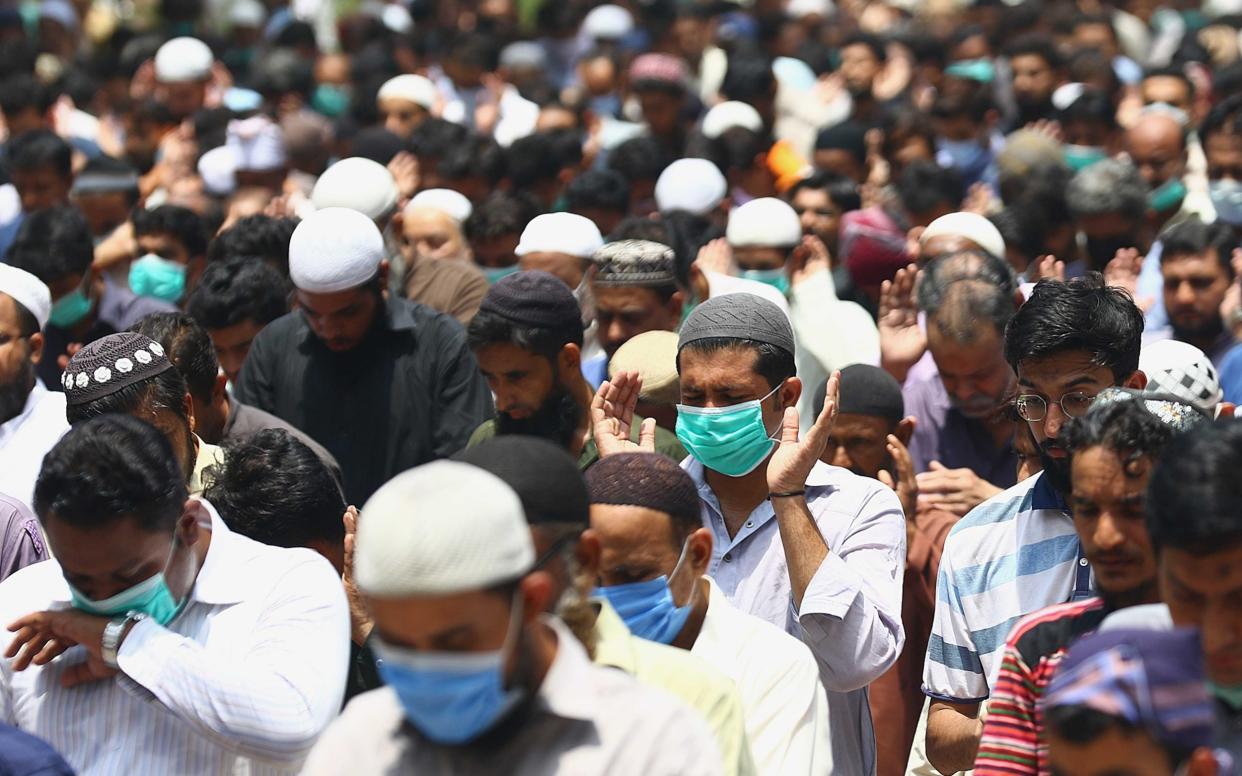Hoarding of oxygen tanks in Pakistan pushes prices up several fold during pandemic


Health officials and suppliers are facing a run on oxygen cylinders in Pakistan, blaming hoarding during the coronavirus pandemic.
Prices for tanks to supply oxygen to Covid-19 patients have risen several fold in recent weeks and at least one province has used public order laws to try to stop profiteering.
Pakistan has dropped customs duty on the import of oxygen and cylinders to try to ensure availability. One of the nation’s largest providers of medical oxygen has also increased its supply four times over to 10,000 cylinders since Covid-19 cases began to rise in April.
“The amount of oxygen being utilised in this problem is unprecedented – there is a shortfall even without anticipating the demand,” Saad Khalid Niaz, a gastroenterologist at the private Patel Hospital in Karachi and a member of several medical associations in Pakistan, told Bloomberg.
Official figures show Pakistan's outbreak grew slowly at first, as the country locked down early. But cases began to spike from late May after restrictions were eased because the government said they were economically unsustainable. Imran Khan's government switched to a new programme of targeted “smart lockdowns”, shutting down individual locales where virus hotspots were detected.

The government says the strategy is working, with daily cases and deaths beginning to fall. Testing has fallen sharply at the same time however, leaving opposition figures to accuse the government of managing the figures to show a decline. International officials say the fall in testing makes it difficult to track the progress of the outbreak.
Faisal Sultan, an epidemiologist who acts as Mr Khan's point man for Covid-19 strategy, blamed hoarding for the shortfall of medical oxygen and said the pressure was easing as new infections appeared to be flattening out.
“If there is an intermediary supply side shortage, that is possible,” he told Bloomberg. “When there is a run, there is hoarding and artificial shortage because of individual behaviours.”
Dr Qaissar Sajjad, chairman of the Pakistan Medical Association, told The Telegraph the situation appeared to have improved from two weeks ago in hospitals, but people were still thought to be hoarding cylinders in their homes.
Health officials are concerned that the Eid ul-Adha religious holiday at the end of the month may boost another surge in infections. Careless socialising and partying during the Eid ul-Fitr celebrations at the end of May were blamed for sowing a wave of infections that emerged in June.
Protect yourself and your family by learning more about Global Health Security


